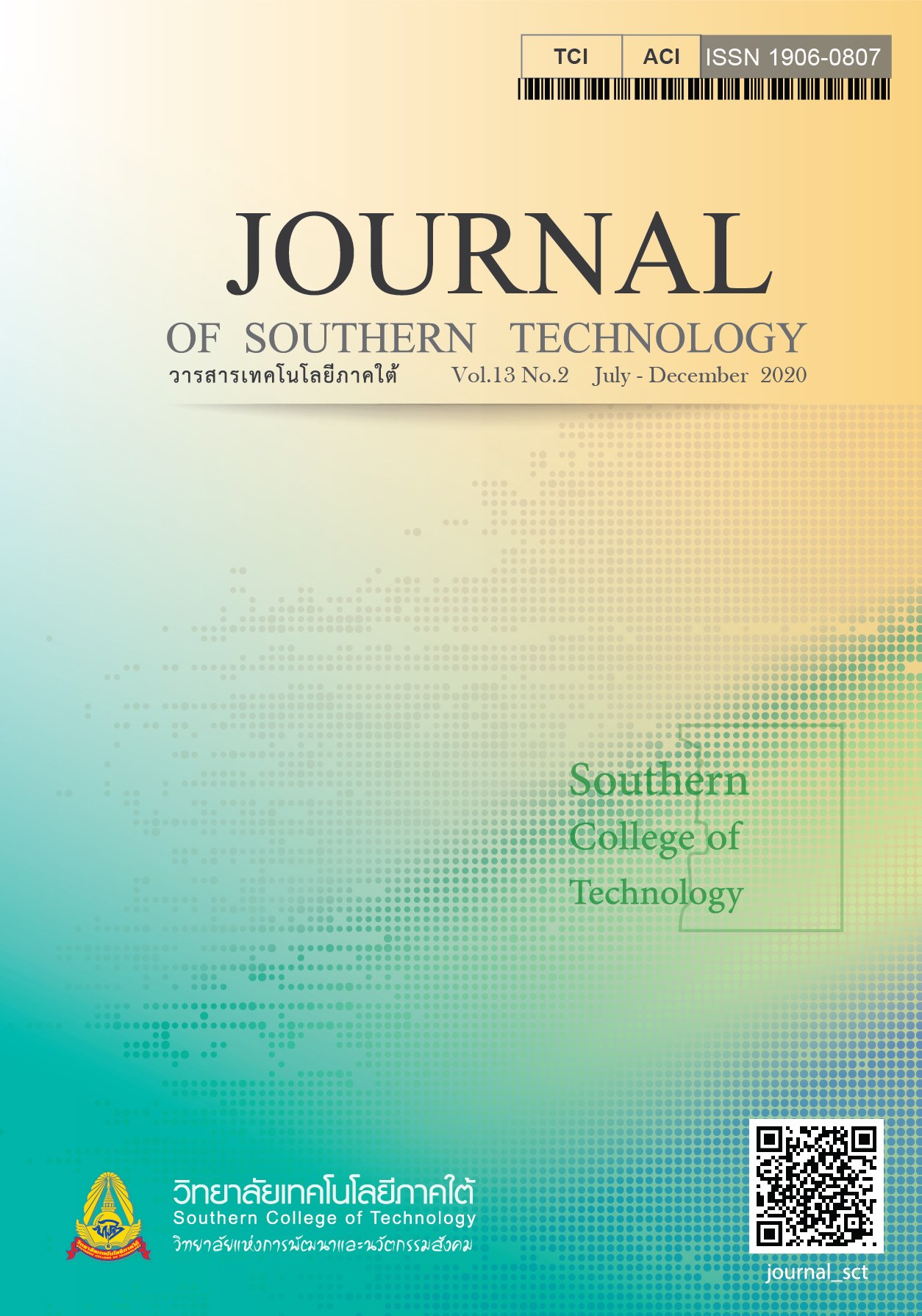Application of Information Communication Technology to Develop Thai Farmers’ Potentials and Become Smart Farmers
Main Article Content
Abstract
The objectives of this research were to study the context of using Information and Communication Technology (ICT) for the development of Thai farmers' potentials to become smart farmers; their communication patterns and propose guidelines of using ICT for the development. It is a qualitative study. In-depth interviews were conducted with 9 key informants who were purposively selected using interview questions. Then, the data were analyzed by means of content and descriptive analysis. Results revealed that most of the smart farmers were male, the average age was 55 years, who finished primary school. Their average family size was 4 members, with average annual income was 200,000-860,000 baht, and an average of 1-10 rai of land with rice planting and gardening. The use of ICT in daily life was mainly through smartphones and tablets. The purpose was for information searching and communication. The main communication channel was the media through people like smart agricultural officers, followed by ICT media. This was done through formal communication, i.e. top to bottom and bottom up followed by horizontal communication and network communication. The communication strategies used were seminars, vocational visits and participation. It was suggested that farmers should use the internet of things (IoT), sensor, big data, geo, drone and robotic systems in developing their potentials and to applying them at work. There needs to be supported from government. Ministry of agriculture and related offices must work cooperatively to implement the policy via ICT application in order to develop their potentials.
Article Details
-
Authors must agree to the journal publication rules and allow the editors to edit the manuscripts for publication.
-
Author’s right belongs to the author but Journal of Southern Technology holds the right of first publication and thus allow readers to use the article for the purpose of education but not commercial.
References
Colin, C. (1978). Human Communication: A Review, A Survey and A Criticism. New York: Holt, Rinehart & Winston.
Janthonpensakul, L. (2012). Motivation and Job Satisfaction of Teachers of the Faculty of Animal Science College of Agriculture and Technology Northeast Group Office of Vocational Education Commission (Master’s Thesis). King Mongkut's Institute of Technology Ladkrabang. [in Thai]
Kaewthep, K. (1998). Mass Media Study with Critical Theory: Research Concepts and Examples. Bangkok: Pappim Printing. [in Thai]
Kraipinij, Y., Chantuek, T., & Siriwong, P. (2017). Modern agricultural management of Thailand. Research Journal and Development of the Valaya Alongkorn under the Royal Patronage, 12(2), 115-127. [in Thai]
Manwicha, C. (2015). Smart farms technology. Hatyai Academic Journal, 14(2), 201-210. [in Thai]
Ministry of Agriculture and Cooperatives. (2013). The Development Smart Farmer and Smart Officer. Bangkok: Information and Communication Technology Center. [in Thai]
Office of Agricultural Economics. (2015). Agricul- tural Statistics of Thailand 2015. Bangkok: National Buddhism Printing Office. [in Thai]
Plooksakul, I. (2013). Information Technology in the Agricultural Profession. Maha Sarakham: Information Technology. [in Thai]
Phumcharoen, J., Tangsuch, K., & Ploywattanawong, L. (2019). Decision support system for agricultural planning. Khon Kaen University Research Journal (Graduate Study Version), 19(1), 112-123. [in Thai]
Rangkawat, N. (2012). Future Development Path for Thai Agricultural Promotion. Issue: "Media" for the Promotion of the Concept of the Sufficiency Economy Philosophy. Bangkok: The Thailand Research Fund.
[in Thai]
Saito, Y., T. Suzuki, K., Kobayashi, K., Sato, M., Hiafuji, T., Fukatsu, R., Yashiro, S., … Kameoka, T. (2006). Field Server Monitoring System for Construction of IT Farming and Agri-tourism-Trial Report from Obuse-town, Nagano, In Proceedings of SiCE-ICASE International Joint Conference. Busan, Korea, PP. 4848-4851.
Srimuk, S. (2011). Agricultural Reform: Agricultural Reform: Smart Farmer. Bangkok: Research and Information Groups, Academics Affairs, the Secretariat of the Senate. [in Thai]
Institute for Sustainable Agriculture Foundation (Thailand). (2008). How to Reform the Country in order to free Thai Farmers from the Crisis? Nonthaburi: Sustainable Agriculture Foundation (Thailand), [in Thai]
Thailand Development Research Institute. (2015). Agricultural System Reform: Management of Agricultural Economic Zones. (Agricultural Reform: Zoning). Bangkok: Office of Academic Affairs Office of the Secretary of the Senate. [in Thai]
Yenjabok, P., Daengpetch, S., & Sittirangsan, T. (2004). Communication for Agricultural Development, New Theory of King Bhumibol Adulyadej. Bangkok: The Thailand Research Fund. [in Thai]

